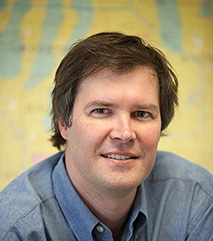Bret Birdsong

Bret Birdsong is a Professor at the Boyd School of Law. His expertise is in the area of Environmental Law, Water Law, Natural Resources Law, Administrative Law.
What's the most important thing you are working on right now?
I returned to the faculty this year after serving in President Obama’s administration as Deputy Solicitor for Land Resources at the Department of the Interior. In the near term, I am working to help protect President Obama’s conservation legacy. Over the longer term, I am beginning a book about the evolution of the Bureau of Land Management (BLM), which has a challenging mission of multiple-use of the public lands. In the past decade or so, the BLM has moved to embrace the conservation aspect of its mission and has been an innovator in promoting renewable energy, protecting species like the greater sage grouse, and mitigating the environmental effects of natural resource development, while at the same time continuing to provide for economic growth in the West.
What is the most significant issue facing your field and how should it be addressed?
Without a doubt, climate change is the most significant challenge for federal public lands and natural resources management. Sound science indicates that we need to figure out both how to mitigate and adapt to the changing climate, and we need to do it fast, before it is too late to avert catastrophic consequences. That means moving our law toward promoting renewable energy, reducing fossil fuels, and conserving the habitats and ecological systems that are stressed by rising global temperatures and climatic changes. I still believe we can have it all on our public lands – great conservation and great economic development – if we do it smartly and quickly.
When students ask you what they should read outside the required textbooks and other law-related books, what do you suggest?
I always encourage students to read literature and history about the American West. One cannot truly understand the laws and policies that have shaped our landscape and way of life without knowing about the history and culture that drives and is driven by those laws. So students – indeed all Nevadans – should pick up a novel by Thomas McGuane, Wallace Stegner, Willa Cather, or Amy Tan, or even the journals of Lewis and Clark or John Wesley Powell or other figures in Western history.